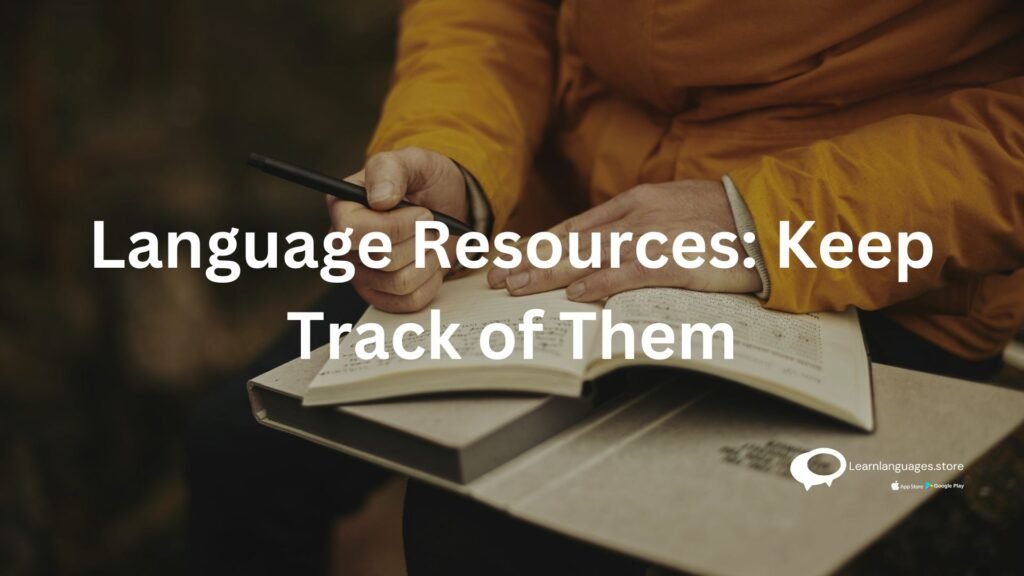HOW TO MAKE A BULLET JOURNAL YOUR SECRET WEAPON FOR LANGUAGE LEARNING
HOW TO MAKE A BULLET JOURNAL YOUR SECRET WEAPON FOR LANGUAGE LEARNING
I started keeping a bullet journal in November of last year, and now I can’t stop. I drank a lot of “bujo” kool-aid. I’ll probably be in a documentary about getting out of the bullet journal cult in three years.
Even without the jokes, I really like it.
It not only helps me plan my day-to-day life, but it has also turned into a kind of beautiful log of my life. I also find that taking the time to make my “spreads” and write everything down is almost like a form of meditation.
I also didn’t think about the fact that a bullet journal could be a great way to plan and keep track of your language study. Over the past few months, I’ve spent more time than I’d like to admit watching polyglots use bullet journals to plan how they will learn new languages.a
That gave me a lot of ideas for how I could use the bujo method to learn a language, and I want to share some of what I’ve learned with you here.

So think of this as a full guide on how to use a bullet journal to learn a language.
Bullet journals make it easy to keep track of your life.
For someone who has never used a bullet journal before, like me five months ago, it’s kind of a mix between an agenda, a notebook, and a sketchbook. The method’s creator, Ryder Caroll, says that it lets you “track the past, organise the present, and plan for the future.”
If you like to plan your life, you may already know how hard it is to find the right schedule. This one has some great quotes to get you going, but the calendar doesn’t work quite right. You like that it has room for your daily tasks and meetings, but you wish there was more room to write notes. The other one has a great way to keep track of your spending, but there’s nowhere to write down your grades on your university assignments.

The bullet notebook can help with all of that.
There are only little dots on it. The idea is that you can change it to make it just what you need.
Your Bullet Journal Basics
Most bullet diaries have at least these four parts:
An index. This is the first thing that goes in your journal. It gives your later spreads a page number so it’s easy to find what you’re looking for later. I don’t use this very often, but most people do.
A future log. This will help you remember what you have to do in the next six months to a year.
A calendar for one month. This tells you what’s going to happen in the next month.
A daily job list. Here is where you write down everything you have to do for the day.
You can also add pages for things that are important to you, like your goals for the year, a place to write a journal, a place to keep track of your spending, etc. You can do whatever you want with it.

The best ways to use a bullet journal to learn a language
Now that you have your bullet journal set up for your life, you can start to think about how it can help you keep track of your language study.
Here are some ways you could use it.
Write down your language learning goals.
One of the most important things you can do to learn a language is to set language goals. They help you know what you want to achieve so you can stay focused and inspired to do the hard work of keeping up with your learning.
Your bujo is the best place to write down your language goals or New Year’s resolutions to improve your language skills.

use it to build your programme for learning a language.
Having a good programme can help you learn a language well. That means you need a plan for what you’ll learn first, what tools you’ll use, and so on.
Pimsleur can really help with this because it takes out a lot of the guesswork when it comes to making a good programme for learning a language. But you might still want to keep track of how you plan to study and what other things you’ll do.
Put your plan for learning a language in your bullet journal after you’ve made it.

Set up a routine for learning a language with your Bullet Journal.
Making learning a language part of your habit is one way to keep up with it.
For example, you might use your app to learn a language while you’re having your morning coffee. Or, you could listen to a podcast at night while you do the work. You could also read a book before going to sleep.
Making studying your language a habit can be very helpful. You can keep track of your habits in a bullet journal in many useful ways.

Use it to measure your progress and keep track of it.
You can use it to do more than just keep track of when and how often you study your language. You can also use it to measure your language growth.
I really like Lindie Botes’s method for doing that. She fills in the bars according to how she thinks she’s doing and where she wants to be by the end of the year
Language Resources: Keep Track of Them
You know that reading is important for learning a language, so why not keep a list of books you want to read in your bullet journal? Or, use your bullet journal to keep track of the Netflix shows you want to watch in the language you’re learning. If you are learning French, Portuguese, Spanish, or Japanese, we have some ideas for you there.
You could also write down the apps you like, the video games you want to try, or the songs you want to add to your playlist.

Plan where you want to go on your next trip.
We hope it won’t be too long until we can travel easily again, and your bujo is a great place to start planning your next trip.
Use it to make a list of places you want to visit or to come up with ideas for your next trip. And while you’re gone, you can use it as a scrapbook to write down your favorite experiences.
Write down recipes you want to try.
A great way to improve your speaking skills is to cook. Use your bullet journal to write down new ideas or old ones that you like.
Use Your Bullet log to Keep Track of New Words Lastly, you can keep a vocabulary log in your bullet journal. Write down the new words and sentences you learn, as well as what they mean.
Use it to measure your progress and keep track of it.
You can use it to do more than just keep track of when and how often you study your language. You can also use it to measure your language growth.
Learn Languages Store
Vashi,
Email: services@learnlanguages.store










